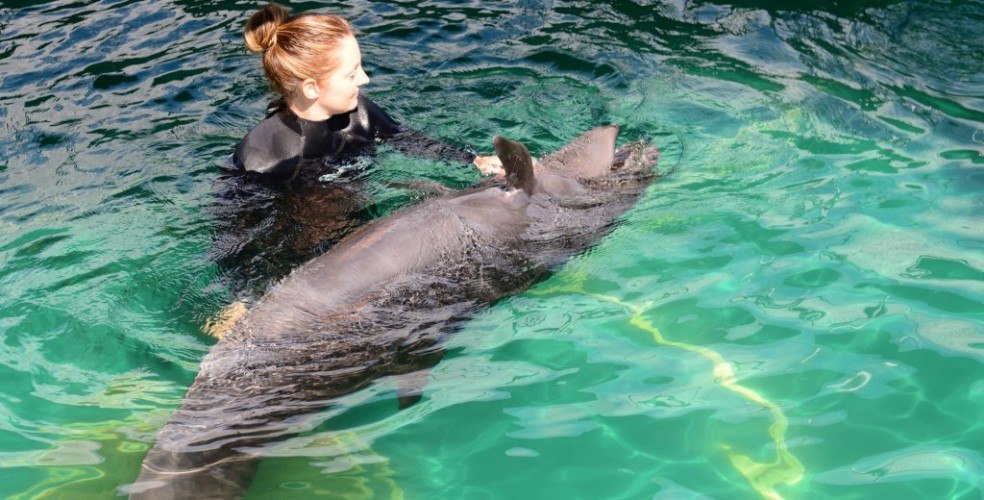
The issue of whether Vancouver Aquarium should keep whales and dolphins in captivity may be the subject of a public vote, if a Park Board motion passes Monday night.
The motion proposes asking Vancouver residents if they support the keeping of cetaceans by the Aquarium on the 2018 Municipal Election ballot.
Moved by Park Board Commissioner Sarah Kirby-Yung, also proposes asking the Aquarium not to bring in any cetaceans until after the results of the vote are in.
The Aquarium currently has no whales in captivity, since the death of its two beluga whales, Aurora and Qila in November last year.
“Our job as elected officials is to listen to Vancouverites,” Kirby-Yung told Daily Hive on Monday. “Since the deaths of the belugas last year, we’ve heard from a lot of Vancouverites who want a chance to express themselves on this issue.”
Only 3 cetaceans now in captivity

Chester the false killer whale (Vancouver Aquarium)
Deana Lancaster, a spokesperson for the Vancouver Aquarium Marine Science Centre, told Daily Hive the Aquarium currently has only three cetaceans in captivity.
All three animals were rescued – Helen, a Pacific white sided dolphin, Chester, a false killer whale, also a type of dolphin, and Daisy, a harbour porpoise.
Lancaster also pointed out that the Aquarium’s Marine Mammal Rescue Centre — a hospital for sick, injured or orphaned marine mammals — is the only one of its kind in Canada.
Last year the team rescued 170 animals. More than 100 of those were rehabilitated and released back into the wild, said Lancaster.
2nd in world to capture and display orca
Vancouver Aquarium was the second facility in the world to capture and display an orca, when it accepted Moby Doll in 1964.
The huge whale was supposed to be killed to serve as a model for a life-sized sculpture, but after being harpooned and shot, Moby Doll didn’t die.
So the Aquarium decided to tow the orca back to Vancouver and put him on display. Sadly, Moby Doll died after only 88 days in captivity.
1st in world to stop catching orcas
However, despite these heartbreaking beginnings, the lot of cetaceans at the Aquarium has improved immensely.
The last dolphin captured for the Aquarium arrived in 1971; the last whale captured was Aurora, in 1990.
And in 1996, the Vancouver Aquarium became the first in the world to stop capturing orcas for captivity completely.
It also committed to only care for whales and dolphins captured before 1996, born in a zoo or aquarium, or rescued and deemed non-releasable.
Lancaster said those animals often aid various research projects that use observations of captive cetaceans to help animals in the wild.
Examples of such projects include:
- Research relating to captive harbour porpoises’ biosonar detection range, which will be used to try to save the vaquita porpoise, the most endangered cetacean on Earth
- Observations of beluga whales, which led to the discovery of “contact calls” between mothers and calves, and informed the study of underwater noise pollution in the wild.

